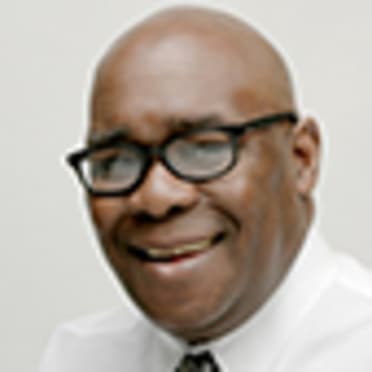Jackie Robinson's birthplace marker rededicated
MLB helps replace vandalized sign; duplicate established at library in Cairo, Ga.
The Georgia Historical Society, in conjunction with Major League Baseball and the Jackie Robinson Cairo Memorial Institute, recently dedicated two historical markers at the birthplace of Jackie Robinson.
The markers referenced the birthplace of Robinson in Grady County. The marker at Robinson’s birthplace (County Route 154 in Cairo) was replaced after the original was vandalized by gunfire last year, and a new, duplicate historical marker is located at the Roddenbery Memorial Library in downtown Cairo.
Together, the two new historical markers will allow residents and visitors alike to learn more about one of baseball’s -- and American society’s -- most important historical figures.
“It wasn’t easy to hear what happened down here,” said Kevin Moss, MLB’s senior manager of community affairs. “But I’m proud to work for a company that stands by a certain set of values, not only with action, but also with dollars.”
Major League Baseball played a significant role in this endeavor and is largely responsible for the two markers being placed in Cairo. The league gave a $40,000 gift to the Georgia Historical Society, which allowed it to replace the damaged marker at Robinson’s birthplace and create an endowment fund named in his memory.
The endowment will provide perpetual care for the historical markers.
“We are grateful for the Georgia Historical Society and their efforts to preserve the birthplace marker of Jackie Robinson in Cairo,” Commissioner Rob Manfred said. “We hope this historic monument will continue to serve as an example of a life filled with courage and strength for generations of young people.”
The dedication ceremony, a public event, took place on Jan. 28 at the Roddenbery library -- three days before what would have been Robinson’s 103rd birthday. Among the many dignitaries in attendance were Cairo Mayor Booker Gainor; Rep. Sanford Bishop; Raymond Doswell (VP and curator of the Negro Leagues Baseball Museum); Janet Boudet (director of the Roddenbery library); Howard Thrower (chairman of the Roddenbery Memorial Library Board of Trustees); Dr. Linda Walden (a third cousin of Robinson and founder of the Jackie Robinson Cairo Memorial Institute) and Dr. W. Todd Groce (president and CEO of the Georgia Historical Society).
“This marker that you see over here, it is a big deal to me,” Walden said. “Because it represents who he was. It represents his contributions to this country. It represents moving us forward. It represents opening doors that were closed for African Americans and people of color. If it wasn’t for what he did, there’s no telling where we would be now.”
The marker reads:
Birthplace of Jackie Robinson:
First African American in Modern-Day Major League Baseball
Robinson was born 13 miles south of Cairo on January 31, 1919, before he and his family moved to California in 1920. After attending UCLA, serving in the U.S. Army, and playing in the Negro American Baseball and International Leagues, Robinson played for the Brooklyn Dodgers in 1947, breaking Major League Baseball’s color barrier. Adding to his many athletic accomplishments, he served as special assistant to New York Governor Nelson Rockefeller, established the first African American Modern Bank/Freedom National Bank, and provided housing for the underprivileged through his construction firm. Robinson died in 1972. His birthplace burned in 1996, but the chimney still stands.
“The legacy he has left is being a trailblazer in our sport and an important person in the civil rights movement and progressing our country,” Moss said. “[We are] making sure people remember his name and they can see it. That means so much to us.”
Robinson’s legacy will be even stronger at the Negro Leagues Baseball Museum in Kansas City, where it was recently announced that the damaged marker will be on display.
“The Georgia Historical Society reached out to [NLBM] asking if we would be willing to showcase the damaged marker as an educational tool and teach people not only about Jackie Robinson, but hopefully an educational tool that could help mend the gaps of hate that are in our country,” Doswell said. “We accepted.”
